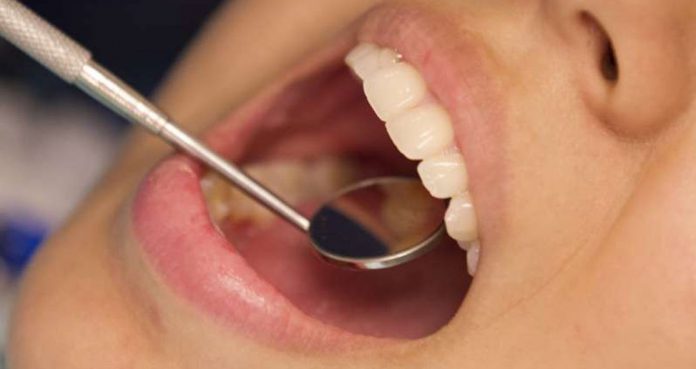According to a new study, poor oral health can increase the risk of hepatocellular carcinoma (liver cancer) by 75 percent.
Researchers at Queen’s University Belfast analyzed more than 469,000 people in the United Kingdom. They looked at the association between oral health issues and the risk of gastrointestinal (GI) cancers, including liver, pancreatic, and colorectal cancer.
Certain models were used to estimate the association between cancer risk and oral health conditions – such as mouth ulcers, painful or bleeding gums, and loose teeth.
Though there were no remarkable associations between the risk of the majority of GI cancers and lack of organ hygiene, the researchers found a significant link for hepatobiliary cancer.
Lead author Haydee Jordao from the Queen’s University Belfast said, “Poor oral health has been associated with the risk of several chronic diseases, such as heart disease, stroke and diabetes.”
Jordao added, “However, there is inconsistent evidence on the association between poor oral health and specific types of gastrointestinal cancers, which is what our research aimed to examine.”
The findings of the study were published in the United European Gastroenterology Journal.
Of the 469,628 participants, 4,069 developed GI cancer during the six-year follow-up. Thirteen percent of these cases reported poor oral health.
The researchers explained that the participants with poor oral health were more likely to be younger, female, who lived in deprived socioeconomic areas and ate less than two portions of vegetables and fruits per day.
Currently, the physiological mechanism between the association of cancer risk and poor oral health is uncertain.
The researchers said one of the possibilities is the role of the oral and gut microbiome in the development of cancer.
Jordao said, “The liver contributes to the elimination of bacteria from the human body.”
Liver function may decline and bacteria will survive for longer of the liver is affected by diseases such as hepatitis, cirrhosis or even cancer.
Jordao said, “One bacteria, Fusobacterium nucleatum, originates in the oral cavity but its role in liver cancer is unclear. Further studies investigating the microbiome and liver cancer are therefore warranted.” The researcher also explained cancer risk due to poor oral hygiene suggests that participants with missing teeth may consume softer and less nutritious foods, which may lead to liver cancer.





















